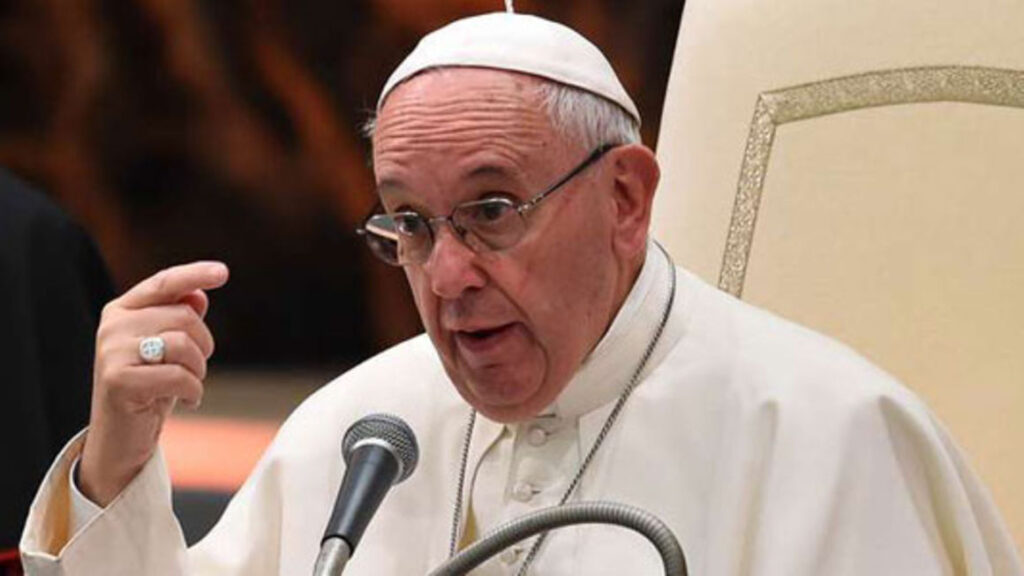While Pope Francis has made his concern about human-caused climate change known on numerous occasions, his position was largely summed up in his second encyclical, Laudato Si (On Care of Our Common Home) in May — a 180-page document that made headlines around the world for being the first papal encyclical based entirely around environmental issues.
While the pope has made his concern about human-caused climate change known on numerous occasions, his position was largely summed up in his second encyclical, Laudato Si (On Care of Our Common Home) in May — a 180-page document that made headlines around the world for being the first papal encyclical based entirely around environmental issues.
According to Unep executive director Achim Steiner, the pope will be reiterating what he has been speaking about — which is what Unep has been doing since 1972: The environment.
“The pope has been open about the relation between humans and nature stating clearly that what is harmful to the environment is harmful to humans. This I believe will be his message to the people across the world when he visits the Unep,” said Mr Steiner.
“His comments on climate change show that he is a symbol beyond the Catholic community or any region by not dividing us on the issue of environment. His emphasis is on our sense of solidarity on environmental issues since the impact is palpable,” he added.
Pope Francis is the fourth pope to address the UN (John Paul II visited twice), and he used the opportunity to push his pro-environment message, framing the issue in moral terms and citing his climate change encyclical, Laudato Si’.
In the letter, the Pope begins by making his appeal. “First, it must be stated that a true ‘right of the environment’ does exist.”
“My appeal, the urgent challenge to protect our common home, includes a concern to bring the whole human family together to seek a sustainable and integral development, for we know that things can change.
“I urgently appeal, then, for a new dialogue about how we are shaping the future of our planet. We need a conversation that includes everyone, since the environmental challenge we are undergoing, and its human roots, concern and affect us all.”
Although each chapter in the encyclical has its own subject and specific approach, it takes up and re-examines important questions previously dealt with.
Respect for life
In chapter one, the Pope is clear that environmental protections include an “absolute respect for life in all its stages and dimensions.”
“The climate is a common good, belonging to all and meant for all. At the global level, it is a complex system linked to many of the essential conditions for human life. A very solid scientific consensus indicates that we are presently witnessing a disturbing warming of the climatic system,” the Pope says in the encyclical.
He explains that global warming has effects on the carbon cycle. It creates a vicious circle that aggravates the situation even more, affecting the availability of essential resources like drinking water, energy and agricultural production in warmer regions, and leading to the extinction of part of the planet’s biodiversity.
Climate change is a global problem with grave implications and represents one of the principal challenges facing humanity in our day. Its worst impact will probably be felt by developing countries in coming decades.
Many of the poor live in areas particularly affected by phenomena related to global warming, and their means of subsistence are largely dependent on natural reserves and ecosystemic services such as agriculture, fishing and forestry.
Many of those who possess more resources and economic or political power seem mostly to be concerned with masking the problems or concealing their symptoms, simply making efforts to reduce some of the negative impacts of climate change. However, many of these symptoms indicate that such effects will continue to worsen if we continue with current models of production and consumption.
In his remarks to the largest gathering of world leaders in UN history — close to 200 prime ministers, presidents, and potentates — the leader of 1.2 billion Catholics blamed environmental degradation on “a selfish and boundless thirst for power and material prosperity” that causes untold suffering for the poor who “are cast off by society.”
He mentioned the international climate summit scheduled for December in Paris, saying he was confident it will result in an effective plan for combatting climate change.
But the environment was hardly Pope Francis’s only focus: In a wide-ranging speech, he urged action on drug trafficking, armed conflict, terrorism, education, inequality, and corruption — reminding the UN General Assembly that “solemn commitments” without follow-through could ultimately do more harm than good.
But he urged leaders not to wait to take steps to end human trafficking, the sexual exploitation of children, the drug and weapons trade, terrorism, and international organised crim
